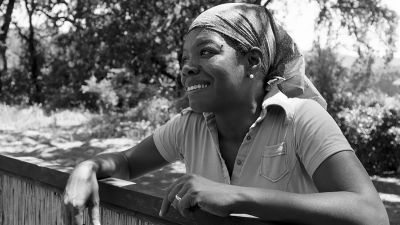
Italians may be singing their way through coronavirus catastrophe, but Americans are howling their way. Some Americans, that is – neighbors in Marin County, California, a few miles north of San Francisco across the Golden Gate Bridge. They come out at night, and you just might hear them if you’re driving along Rt. 101. It’s not howling as we generally know it. It’s rather Walt Whitman’s “Barbaric Yawp,” and coming from the poet whose work touches the soul of America, it is lovely and strangely moving. Therein lies our story. Hear it from my friend Tom Singer, psychiatrist and Jungian psychologist, writer and editor of many books, including Psyche and the City: A Soul’s Guide to the Modern Metropolis. We share particular interests in political and social movements and the human behavior that connects them. Here’s what Tom sent me this week. —Bill Moyers
Walt Whitman would be proud of the people of Mill Valley, California. Peter Reynolds, my neighbor and colleague, shows why in his video recording of the newly emerging ritual of communal howling that begins every evening at precisely 8 pm and which lasts for several minutes.
The first thought that came to mind when my wife and I joined in the boisterous cacophony with our fellow citizens was Whitman’s phrase “barbaric yawp.”
The spotted hawk swoops by and accuses me—he complains of my gab and my loitering.
I too am not a bit tamed, I too am untranslatable,
I sound my barbaric yawp over the roofs of the world…
Whitman, considered by many to be the poet of America’s soul, would clearly recognize the barbaric yawp in the chorus of hoarse and high-pitched cries in response to the “shelter in home” status imposed on all of us by the Coronavirus pandemic. Over the hills and into the valleys of Mill Valley this yawping choir rings with an uproarious thunder of clanging and hooting that is infectiously joyous and liberating. Miraculously, a broad smile erupts on our faces, even in the midst of growing isolation and dread. The anonymous echoing and coming together of faceless voices in the night makes it all the more uncanny and powerful. That the sounds mimic the nightly howls of the local coyotes brings to mind further lines from Whitman’s Leaves of Grass:
I think I could turn and live with animals, they are so placid
and self-contain’d,
I stand and look at them long and long.
They do not sweat and whine about their condition,
They do not lie awake in the dark and weep for their sins.
They do not make me sick discussing their duty to God,
Not one is dissatisfied, not one is demented with the mania of owning things,
Not one kneels to another, nor to his kind that lived thousands of years ago,
Not one is respectable or unhappy over the whole earth. …
What is a “barbaric yawp and why do I immediately think of it on participating in the Mill Valley howling? Steven Hermann, a friend and Jungian colleague of mine with a deep scholarly interest in Whitman, wrote the following to me years ago when I inquired about the meaning of the “Barbaric Yawp”:
“The aim of Whitman’s “barbaric yawp” was to sound a new heroic message of “Happiness, Hope, and Nativity” over the roofs of the world, to sound a primal cry which must remain essentially “unsaid” because it rests at the core of the American soul and cannot be found in any dictionary, utterance. The “barbaric yawp” is a metaphorical utterance for something “untranslatable,” a primal cry from the depths of the American Soul for the emergence of a spiritual human being in whom the aims of liberty and equality have been fully realized and in whom the opposites of love and violence, friendship and war, have been unified at a higher political field of order than anything we have formerly seen in America. His “yawp” is an affect state, a spiritual cry of “Joy” and “Happiness” prior to the emergence of language.”
Whitman would undoubtedly join in our Mill Valley howling as an expression of his Barbaric Yawp. TRY IT!!!!!



